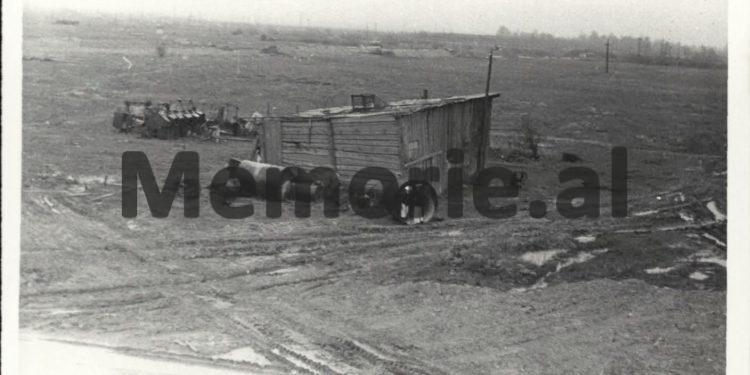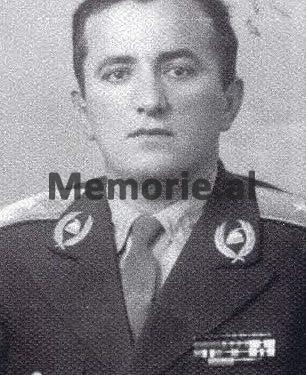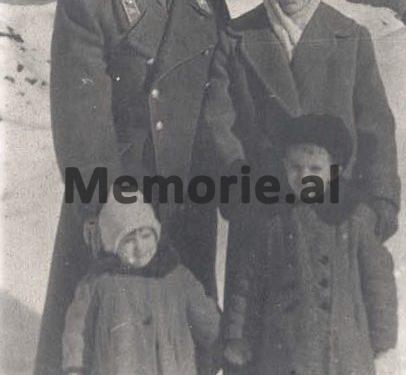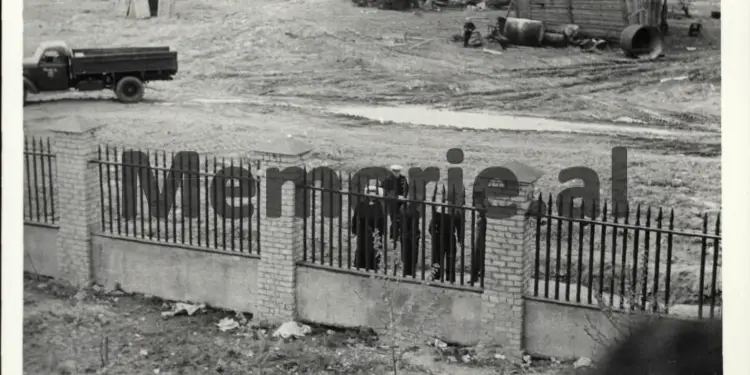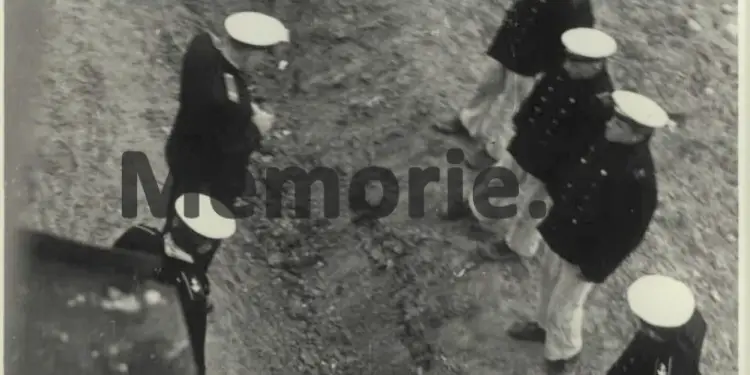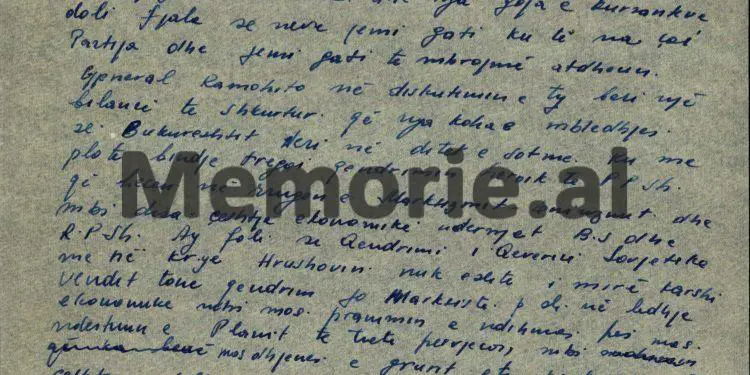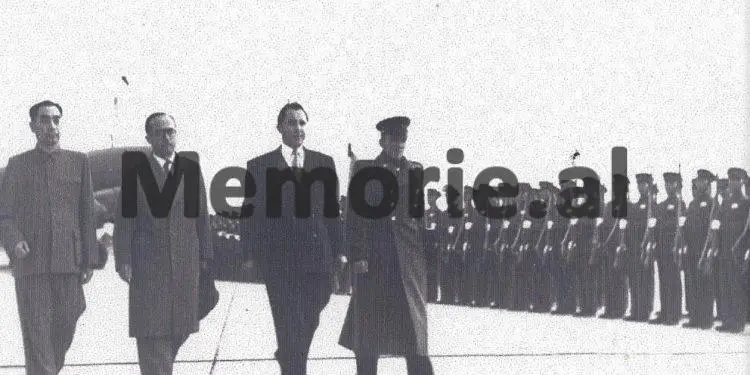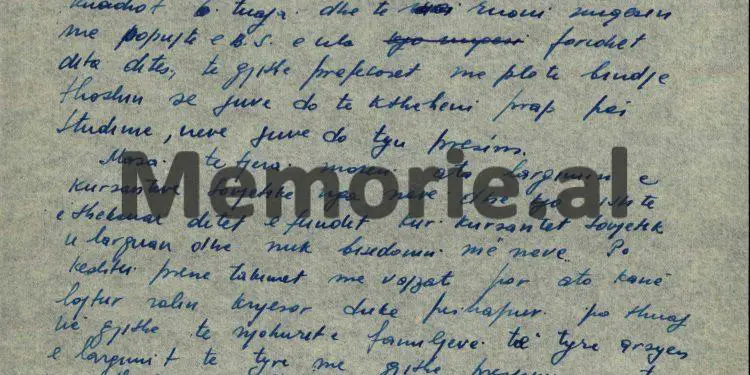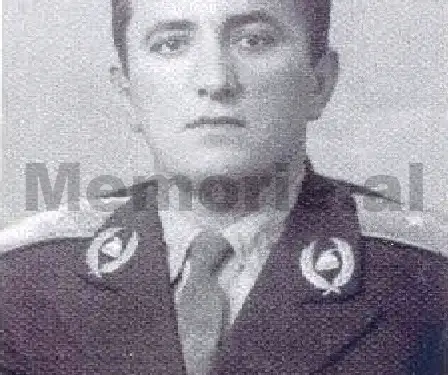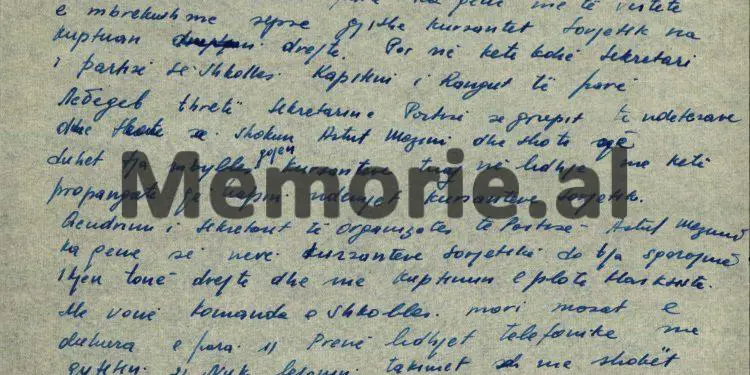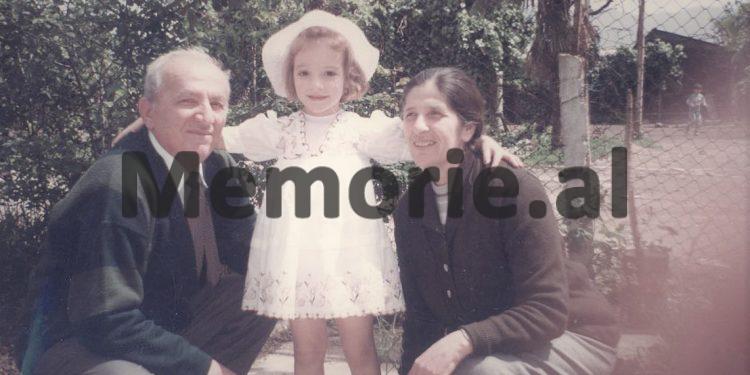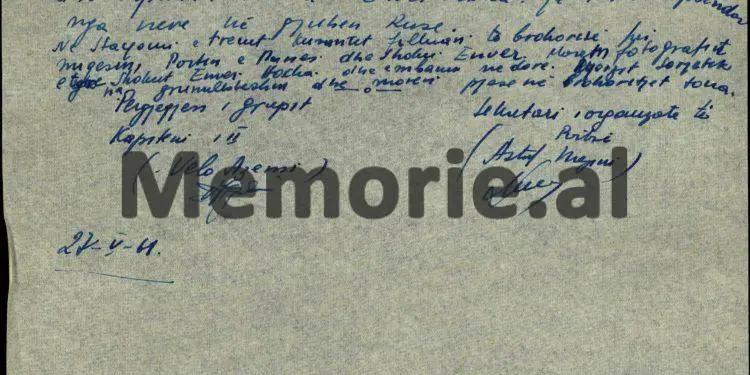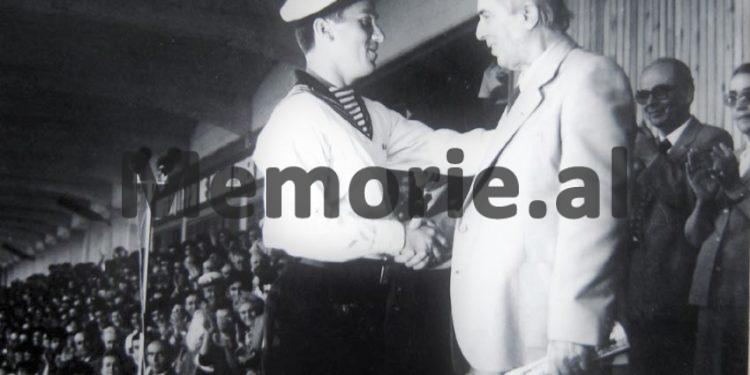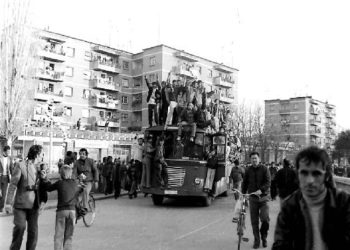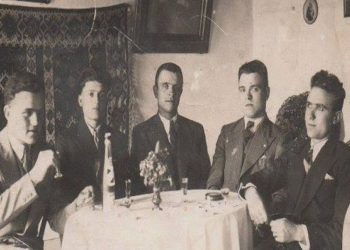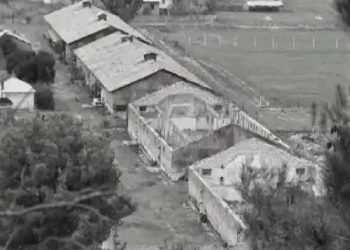Dashnor Kaloçi
Second part
Memorie.al publishes some archival documents with the initials “Top secret”, issued by the Central State Archive in Tirana (Fund of the former Central Committee of the ALP) which belong to 1961 and are part of a voluminous folder with letters , reports, information, reports, instructions, petitions, etc., where it comes to the beginning of contradictions and the breakdown of official Tirana’s relations with the Soviet Union, which at that time was very much felt by Albanian students who were then studying in schools and universities of the Soviet Union, who, by order received from Tirana, discontinued their studies and waited for instructions to return to Albania. The complete file of Albanian students in the former Soviet Union, where most of them, mainly those who attended military academies, had major problems and faced many vicissitudes with the official Russian authorities, being put to the extent of the arrest and the intervention of the Albanian military attaché in Moscow, Major General Halim Ramohito, to unblock the situation and return the Albanian military students to their homeland.
Fund: CENTRAL COMMITTEE OF THE ALBANIAN LABOR PARTY
(Foreign Directorate)
Content: REPORTS OF RELATIONS OF FORMER attaché MILITARY Albanians in the Soviet Union HALIM RAMOHITO, responsible GROUPS OF SECRETARIES OF ORGANIZATIONS BASIS OF trainees Party and officers studying at school MILITARY USSR where the form: ON THE IMPLEMENTATION OF THE ORDER OF PRA GOVERNMENT , FOR THE RETURN TO THE COUNTRY OF MARINE STUDENTS, ETC. OBSTACLES AND PRICING IN THEIR CONDITIONS ARREST OF BODIES Soviets, STAY GOOD POLITICAL trainees and officers Albanians and the conversations they have had with citizens, trainees officers Soviets, the situation in the Soviet Union Unhappiness POLICY Khrushchev, collecting Bucharest OF MOSCOW, THE ATTITUDE TOWARDS YUGOSLAV REVISIONISM, THE SOLIDARITY OF THE PEOPLE, THE STUDENTS, AND SOME SOVIET OFFICERS, WITH THE RIGHT ATTITUDE OF THE ALP.
Continued from the previous issue
RELATIONSHIP OF THE SUBMARINE GROUP
Later from the mouths of Soviet trainees, many bad words came out like p. sh .: when you leave Albania, you will be arrested and imprisoned, because your party follows the line of Yugoslav politics, that you will go to finish your studies in England and America, etc. Professors have maintained a good attitude as e.g. Captain I, Glazunov, who said that you must learn very well, to educate your cadres and maintain friendship with the peoples of the Soviet Union, which is strengthening day by day. All the professors said with full conviction that: one day you will come back for studies that we will wait for you, etc.
Among the other measures they took against us was the departure of Soviet trainees, as in recent days they no longer talked to us. They also interrupted the meeting with the Soviet girls, because the latter played the main role in spreading the news of the departure of the Albanian trainees, to all acquaintances and their families. This happened despite the pressure exerted on them, telling them that Albanians have long since left, that Albanians are not good people, etc. From all this, it turns out very well that the masses of the people know nothing about the attitude of their government towards us, and we can say with full conviction that: everything is hidden from the people.
When they received the order of our departure from Leningrad, they, that we should not meet our acquaintances at the station, calculated it to arrive at the appointed time, d. m. th., 10 minutes before train departure. But this did not happen, because the attitude of our trainees was very meticulous and we asked the School Command to leave as soon as possible. Because our two comrades were late, they said their word that they would stay in the USSR and that they would become Soviet citizens. Their escort from the school was not good, because we were satisfied with just one greeting from the School Commander, while the Soviet trainees did not come out because they were in class. When we got on the train, we were surrounded by Security agents, who tracked our every move. Recently, they stopped the report of comrade Enver Hoxha, which was distributed by us in Russian. At the train station, the trainees began to cheer for the friendship between R. P. SH and the USSR, the Labor Party, and Comrade Enver. We took the photo of comrade Enver Hoxha and held it in our hands. The Soviet people gathered around us, and took part in our cheers.
Group Manager
Captain II
Velo Azemi d.v.
Secretary of the Party Organization
Astrit Mezini d.v.
5/27/1961
Printed in 2 copies
E dakt Kap.I.I.K.Kole.
30.5.1961 Nr. 372 Top Secret
REPORT OF THE MARINE RADIO COLLECTION STUDENT GROUP
In this report, we are writing to you some of our impressions of the Soviet Union and how they behaved towards us. Our impressions of 4 years there have been as follows:
When we left here in January 1958, we thought that the USSR would be the way we thought and dreamed from here on out. When we got there, after a while the opposite came out of what we expected. But it was more our fault, because we were surprised by everything. The impression that surprised us was that the people were dissatisfied with the issue of salaries, housing and living conditions as there were many people who were very bad for housing and in a very tight condition, and this surprised us because we compared to our conditions in the country. Another thing that surprised us immensely was the lack of regular supply of the population. There was more dissatisfaction in the villages and cooperatives, which were not provided with even the most basic things.
Another impression that surprised and saddened us was the lack of salaries. These issues surprised us that the people of the Soviet Union were so dissatisfied. But the people were unhappy since Nikita was in power. From the first days we heard dissatisfaction with Khrushchev and especially with his leadership. We in 1958-’59, did not have this impression, although with every person we met, he complained to us about the situation that was happening. We at first thought that they would not test what we thought of him, and for this reason all Albanian trainees and officers quarreled with the Soviets over these discussions and told them that they should not complain about Khrushchev before us.
With every person we met, they would make fun of Khrushchev, and they would curse or tease him with jokes. They said that Stalin died after he looked after the Soviet people and many, many other things like that. To us, these conversations have been very surprising all these years, and we thought and were surprised when they told us funny things and curses about him, especially lately. We, in the years 1958-‘59, had many cases of fighting with the Soviet people, for these insults that were made to them.
This was common to all the people, especially the pensioners, workers, peasants, and elders who had known and fought and worked since Stalin’s time. If you wanted to take to the streets of Leningrad or move on its outskirts, wherever you went, you heard nothing but insulting words about Khrushchev. When Khrushchev came to Albania years ago, and when they heard in the press about the reception that our people gave him, many Soviets declared that he is not the kind of man for that reception, because he does not deserve it. These words were said to us on a kolkhoz we were visiting in the town of Komonosov, in the sector called New Road. Many open expressions were said by drunken people who shouted in the streets cursing Khrushchev. They were then flagrantly tortured by the police. We have countless such examples, especially in 1960, when the Petrodvorec park was opened and when it was closed.
Also during these holidays, by order of the government, the sale of vodka was stopped and a released officer told us this: Khrushchev cut our vodka, but we will find it again. He had the word that they would make it themselves, because in this period, people generally made their own vodka at home and drank it for the holidays. Especially these days, the people spoke openly that Khrushchev is to blame, but we also chose him in vain, etc. If there were those of the Security or the Police, they were tortured in barbaric ways, but people at one point told a police officer, that we are too many and we are not all imprisoned.
We have the right to drink, because for this we fought and worked. Numerous are the jokes of the people and the officers against the leadership, saying that we help all the countries of the world, including the Arab ones, so that we are left without panties (they were talking about the economic aid they gave to Nasser and the states of Asia). These were the words that two professors said when they were teaching with us, namely Captain I, Doblzhenko and Captain III, Nosob who were senior officers and had been teaching in these schools for 25 years.
There are many cases, and countless are the bad words and contempt that the people made to Khrushchev during the evening festivities. They were telling us to talk inside and not a word to come out, as the Security found out, we were rotting. We went to Leningrad for 4 years, whether I or 53 other trainees, and found no one to brag about Khrushchev. Only we protected him. Especially in the years 1958-‘59 but even then we, too, joined their minds. Many negative expressions that were said in the early years, we did not believe. People used to tell us that you do not know him now but later you will know who this Trotskyist who leads us is. This statement was made by the working communist Ivanovic, who worked at the Kirov plant in Leningrad, on January 1, 1959, on New Year’s Eve. There are countless examples of the Soviet people expressing hatred for him. For a man who has not been to the USSR, if you tell him all these words or conversations of the people, swearing and jokes, you will not believe him. But all these are true because we were told at that time but also later. After the Bucharest Meeting, we Albanian trainees, when the situation became clearer to us, listened attentively to all these conversations, and encouraged those to tell us even more. It is understood that the people also knew something about Bucharest.
One day in the clothing store, a couple in front of a crowd of 200 people declared that there was no more silk from China, as Khrushchev left nothing from Bucharest. After Bucharest, insults against Khrushchev began to increase. When one of our cadets was in the hospital together with 5 Soviet naval officers, among them the Commissioner of the Northern Fleet, a Captain I, he said: “Say goodbye to Comrade Enver Hoxha because your party has shaken him in Bucharest “when Khrushchev wanted to expel China from the camp, without grounds, but only with lies.” When the Albanian trainee came out of the hospital, they hugged him tightly and told him that this love we are expressing is addressed to the Albanian people, the ALP, and your Marxist leadership.
After the Moscow Meeting at school, comes the Head of the Political Branch for Leningrad and read us a lecture on society in the Soviet Union and the PR of China. He stressed that our Party had mistaken but these mistakes were corrected and now we have things very well. These words he said, after the trainees asked him some questions. Among them were those who claimed that Khrushchev was to blame, not the party or the Soviet people. For this expression a fifth year trainee was released from school. Such questions were asked by some trainees but only one of them was prosecuted. There have been numerous cases of military professors expressing dissatisfaction with Khrushchev, especially over the Bucharest affair. They told us not to declare anything openly, because we have a family, and we do not want our shoulders to fly and we to retire like our friends, with small salaries.
During 1960-’61, Soviet trainees associating with us expressed themselves more openly. We asked the professor of Marxism-Leninism questions about Bucharest and he was unable to answer them. Such was the case of Colonel Troskin who was a docent and developed this subject for 45 years. There were also cases when we quarreled with the professors regarding the Yugoslav revisionists, who they said: it is a socialist country and therefore should be helped. When we told him to tell us about the successes of building socialism in Yugoslavia, the policy pursued by the Yugoslav state and Tito, about the aid he receives from the US, the talks and visits he makes, they shrugged. When they told us that your party was fighting Yugoslav revisionism more, we replied that we were implementing the Moscow Declaration. When we told them why your press does not fight them like us, they replied that they resolved issues peacefully and not by force, and in one of these conversations, the professor left the classroom, saying that Albanians are people undisciplined.
When it came time to discuss revisionism, the professor quietly passed the issue. In this regard, Chinese, Vietnamese, and Romanian trainees helped us, while the Poles and the Soviets touched on this chapter a little. The worst treatment of Albanian trainees, they started to do to us this year. But this was done by a few people in command who cared about their position, and protected it from evil, and most of them told us that: with this path followed by your party, the culprit will soon be found. Especially from May 16 to May 24, 1961, our treatment became even worse. The Military Attaché, General Halim Ramohito, came to us and explained to us some issues that we were not familiar with, such as that of the Palace of Culture, Soviet specialists, etc.
After that, we began to talk openly with every military and civilian about Khrushchev’s mistakes. In these discussions, they sometimes praised us and sometimes cursed us. During May 15-18, when we explained to them how Khrushchev cut off our aid and we were forced to buy bread in foreign currency in France, they became more angry and insulted Khrushchev, stating that if we do not help socialist states, who should we help, those states that want to bury the Soviet Union ?! We have done a good job explaining Khrushchev’s mistakes, both outside to the people and to the trainee officers inside the school. They were surprised and told us they did not know these things.
Thus, for example, Captain II Shivcini told us that we are absolutely unaware of these things. On May 18 at 12.00, our entire group of 53 people arrested us and did not let us go outside. When we complained to the Vice Admiral about this, he replied that he would not allow us to leave, as we had been doing politics against the party and the Soviet people for 4 days. Also present at this time were the Head of the Political Branch of the school, Captain I, Mikaci, with all his deputies, as well as 4 Security officers (of whom 2 were from the school, 1 was from Leningrad, and 1 had come from Moscow). They started telling us all that we had said to civilians and the military.
We replied that this is not a policy against your party and your people, but it is the shortcomings of Khrushchev and that your party does not tell you. But if you know them, do not display these ideas as you care about your shoulders and your position. Do not confuse these with the people and the party, because the common people do not know how the Bucharest, Moscow and Warsaw Pact meetings took place. You have kept these things secret not only from the people but also from the communists themselves. So we do not confuse the Soviet people and your party with Khrushchev, because if the people and your party knew these things, this leader you have would not have become in this state.
We have spoken negatively about Khrushchev and will continue to do so, as long as he stays on the wrong path. There are 53 of us here who have spoken ill of Khrushchev, and all those Soviets who have listened to us have unreservedly supported us. Do you know this or not?! The Head of the Branch, Mikoci, answers – we know, and emphasizes that we also have enemies, so we know that too. We said why all the people and all the communists are enemies for you?! After that, he did not continue the discussion but started softening his tone. One of the Security officers said that these are facts that your party has, but we do not have them and you should not speak this language with us. Memorie.al
Head of the Navy and Radiocommunication School Group named Popov
Captain Chaush Malaj d.v.
Party Secretary
Lieutenant Ymer Hoti d.v.
Printed in 2 copies
That’s right. Kap.I.K.Kole
30.5.1961 Nr. 373 r / sh Top Secret
The next issue follows




